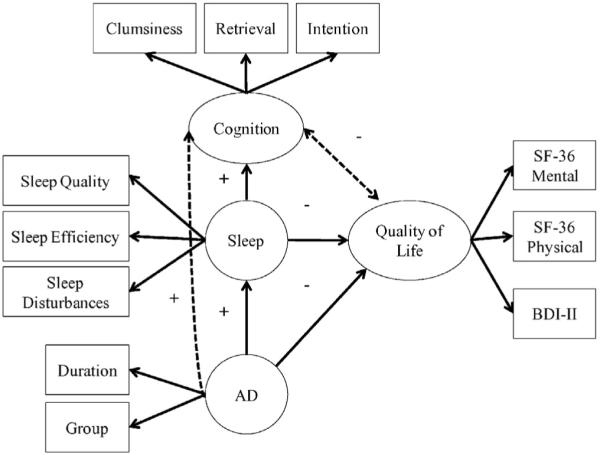Fig. 2.

Initial latent variable model showing hypotheses we wished to examine (represented by solid lines) and plausible hypotheses (dashed lines). Plus signs (+) indicate a positive relationship, whereas minus signs (−) indicate a negative relationship. We predicted that having Addison's disease would result in poorer sleep and impaired cognition (represented by higher scores on the Pittsburgh Sleep Quality Inventory and Cognitive Failures Questionnaire), and poorer quality of life (represented by lower scores on the SF-36 Mental and Physical scales). We also predicted that having poorer sleep (i.e., higher PSQI scores) would result in worse cognition (i.e., higher CFQ scores) and poorer quality of life (i.e., lower SF-36 scores). Finally, we predicted that having poorer cognition (i.e., higher CFQ scores) may result in poorer quality of life (i.e., lower SF-36 scores), or vice-versa.
